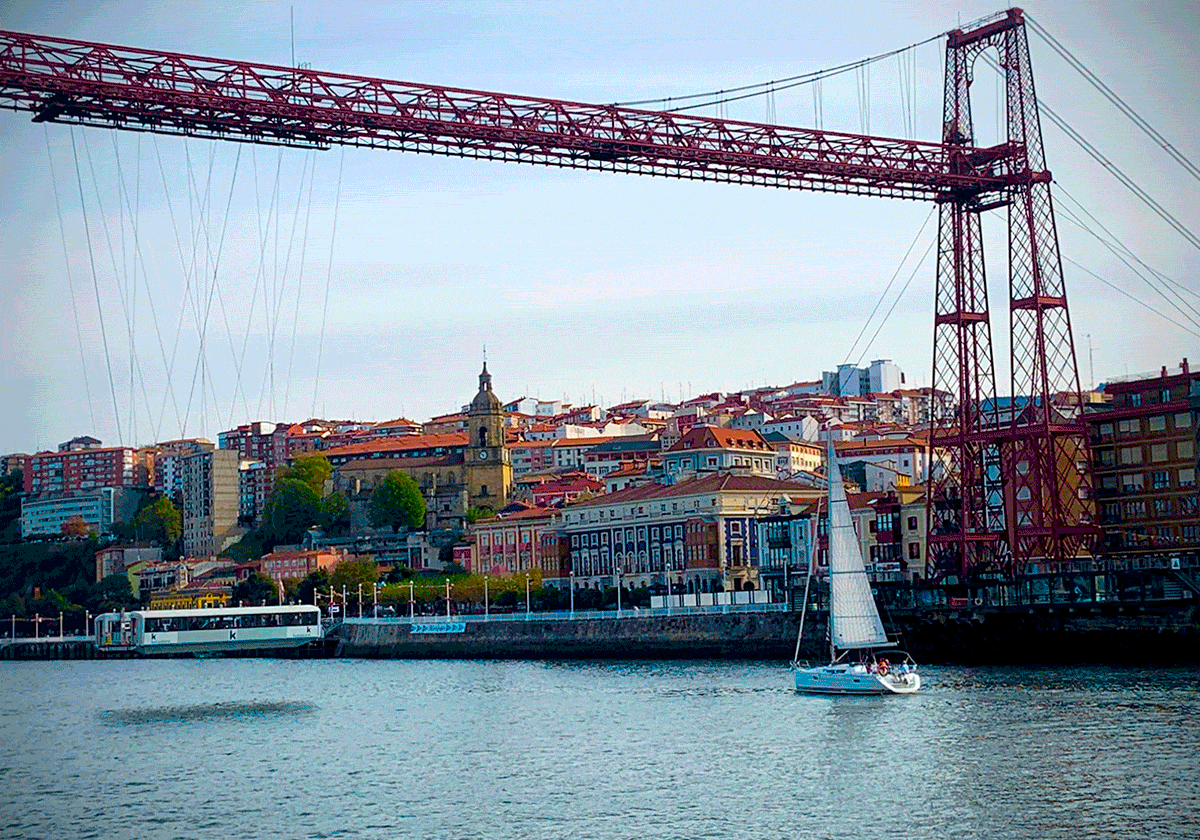

Sections
Services
Highlight

Izaskun Errazti
Sábado, 12 de abril 2025, 18:26
Going on a bridge trip can be more than just enjoying a few days off outside the usual holiday dates. It is also the proposal that Madrid civil engineer Carlos Polimón Olabarrieta presents in his book 'Bridge Hopping in Spain: A Journey Through 100 Must-Sees' (geoPlaneta).
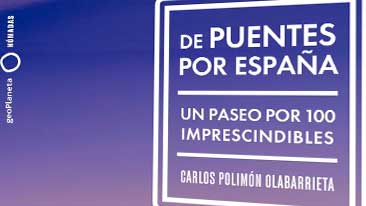
Carlos Polimón Olabarrieta Geoplaneta, 2025. 18 x 24 cm. 240 pages. Softcover. €27.50
The expert states that Spain's collection of such structures, comprising over 60,000 examples owned by four different groups – Adif, the Government, the autonomous communities, and municipalities – is something worth knowing, well-maintained. And that a bridge is much more than an engineering work: "it is an expression of human genius that connects landscapes, cities, and eras."
This book delves into that, and the eternal struggle between the river and the bridge, which the author divides into ten sections: typology, history, viaducts, survivors, record-breaking, urban, special for their shape, integrated into the landscape, unique, and representatives of new approaches. Polimón 'dives in' in this report and selects a piece from each chapter.
The cable-stayed bridge that Javier Manterola built over the Barrios de Luna reservoir is the envy "of all of us engineers dedicated to structures," admits Polimón.
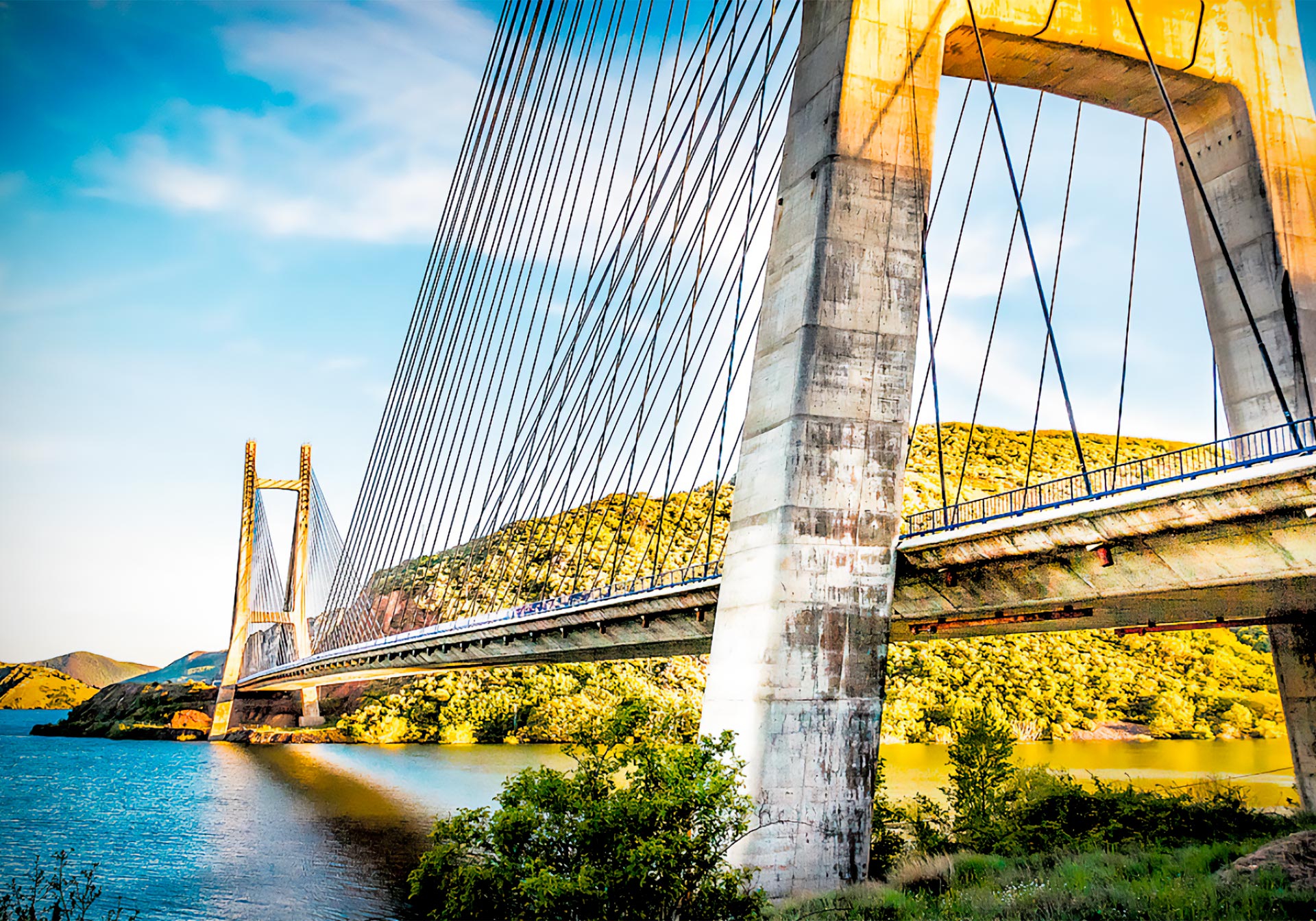
"It's a fantastic bridge, in a wonderful location, in the middle of the reservoir. And it's designed in such a way that you hardly notice you're entering the walkway, and suddenly, you're emerging from the water with your car." "It was a world record at the time and once again placed Spanish engineers among the best in the world."
Inaugurated in 1886, it is an international bridge between Spain and Portugal, featuring three types of traffic: the railway runs over the lattice, the road traffic inside, and the pedestrian outside. Each of the bridge's abutments, which helped revitalise local trade, was a border.
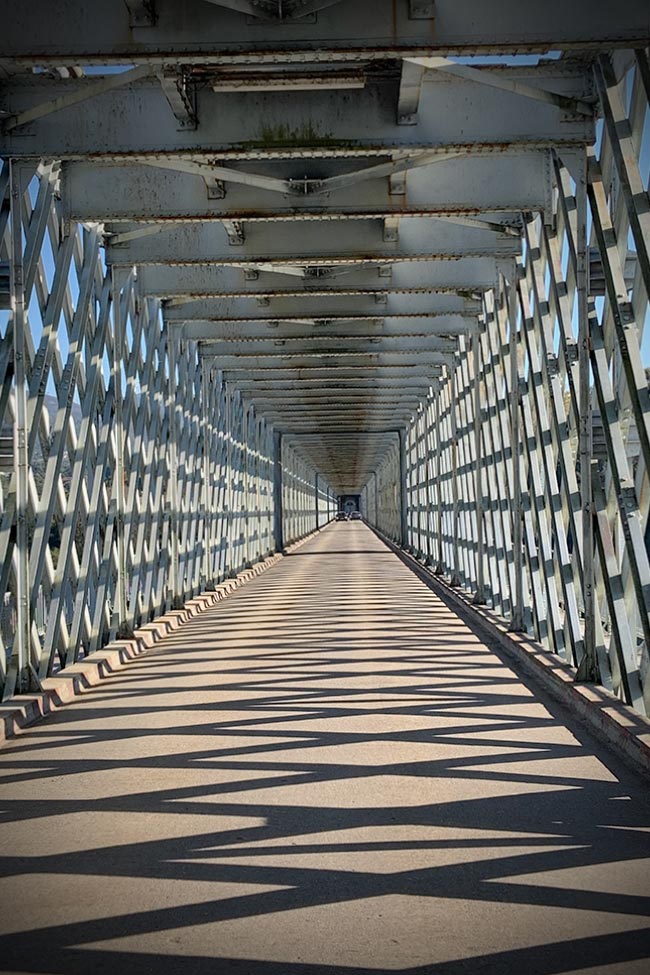
A prototype of a Romanesque arch pedestrian bridge commissioned by an anonymous queen of Navarra over the Arga River in the 11th century. "It is a very symbolic work because it is right at the beginning of the French Way of Saint James," explains Polimón.
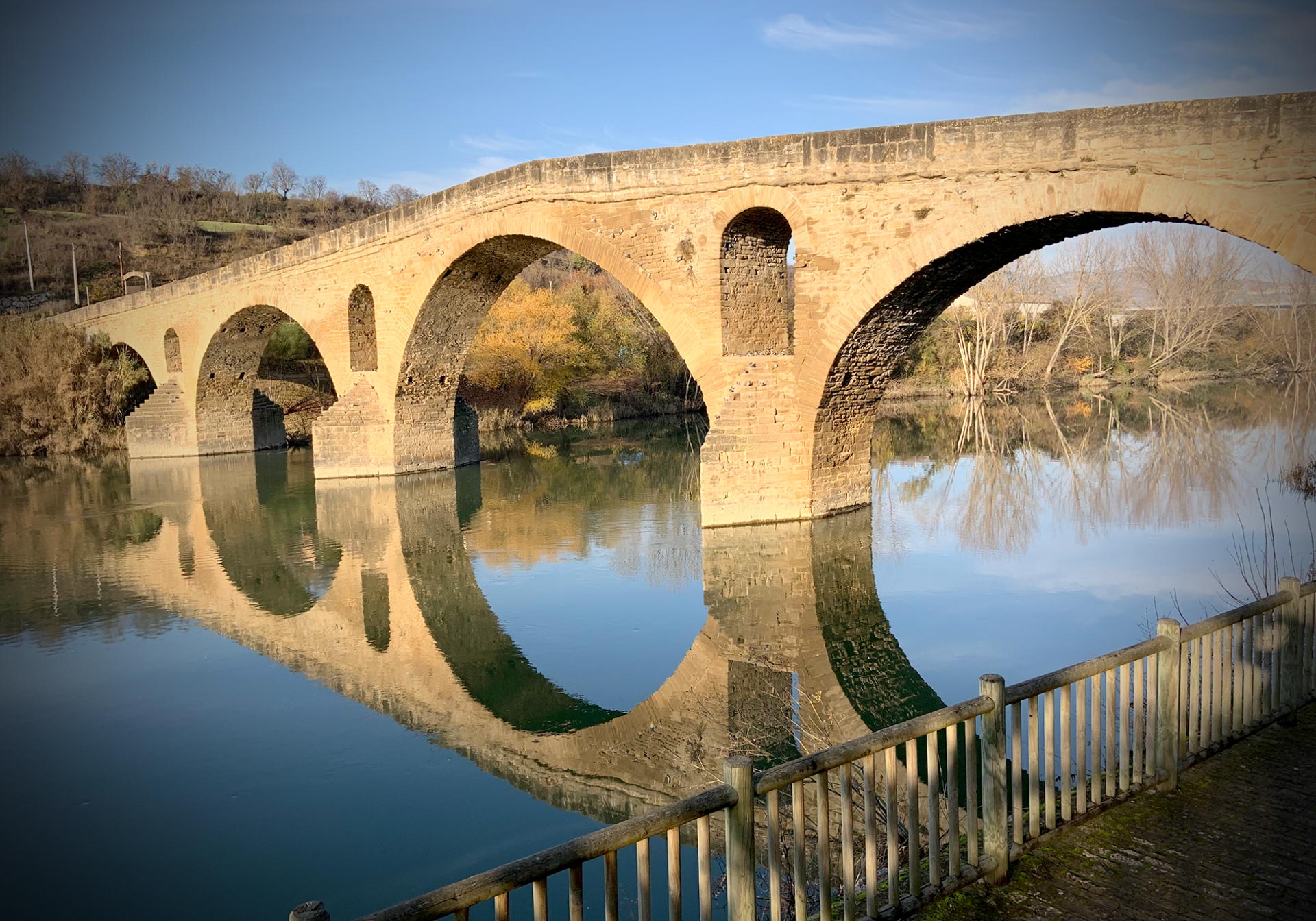
Originally, it had three defensive towers, one at each end and another central, and points where tolls were required. In the 19th century, during the Carlist Wars, the towers were demolished.
Over the Agua ravine, 150 meters deep, stands an arch with a span of 255 meters, "very large, modern," without intermediate supports, dating from 2004. "It's an impressive place, full of plants. I call it a sensory landscape because you pass over a lot of banana plantations, which are typical, next to the sea, right at the exit of a natural park. There's a lot of humidity. You sweat a lot visiting it."
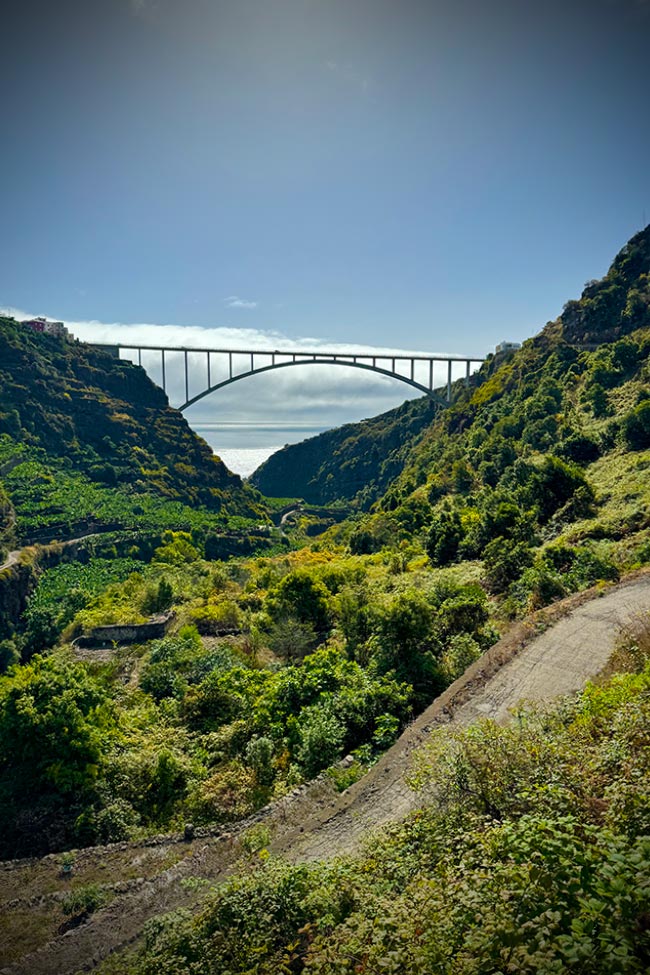
"Spain is not a country of large structures, but of complex and innovative works," evaluates Polimón, who chooses this transporter. "It's a first, and it's not so easy to have a bridge that is so clearly a first of something. It solves the crossing at the mouth of the Bilbao estuary in a great way, it's beautiful, and I love how the cables that hold it sneak between the houses." However, "better in black."
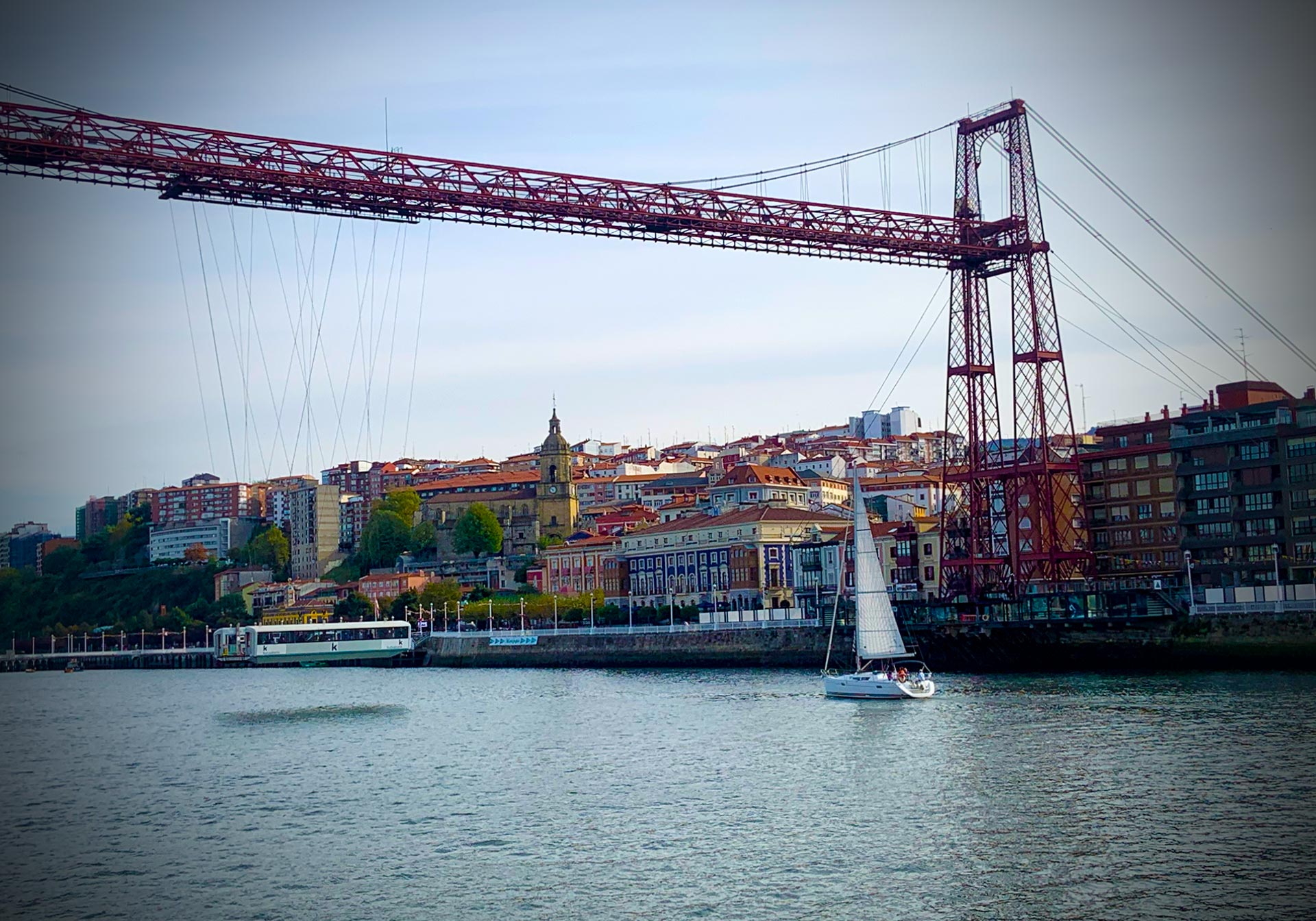
Guardian of the Ebro, the Osera bridge is "very special, very unique. It's like a box bridge, but a modern box, made of concrete, with many alveoli." "I haven't seen another like it," confesses the engineer. "The image of this bridge is very different from anything known."
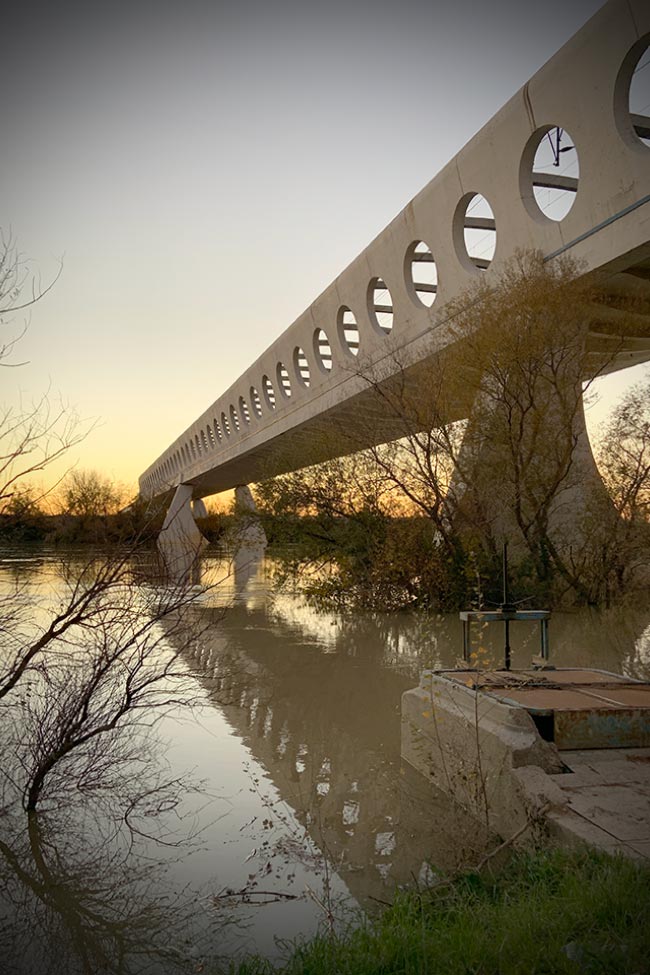
"Madrid commissioned the bridge to Juan de Herrera, who at that time was finishing the monastery of El Escorial. And it's fortunate because it's not usual for the king's architect to make you a bridge," highlights the expert.
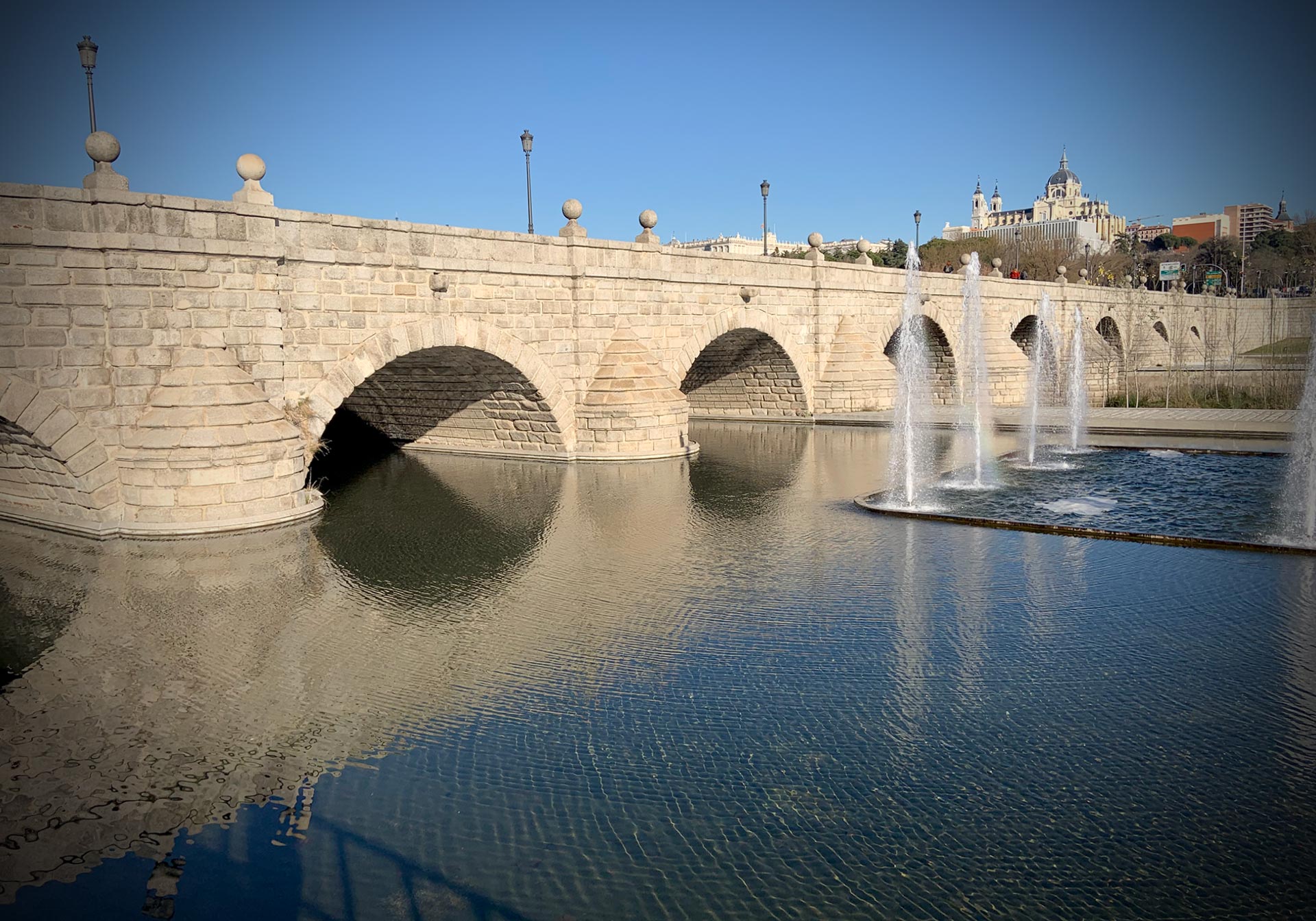
"It's an austere piece that when the Republic arrives and the car boom begins, it becomes narrow. So they split it in half and extend it eleven meters on each side. It's an aggressive intervention that, however, doesn't change the image at all."
New Devil's Bridge next to the Devil's Bridge of Martorell. "A great place with two very good bridges, one next to the other," notes Polimón. "It's the work of a couple of engineers who sought some 'sculpturality', that the bridge piers were sculptures. They are echoes of classicism, of ancient history, and give it a new varnish."
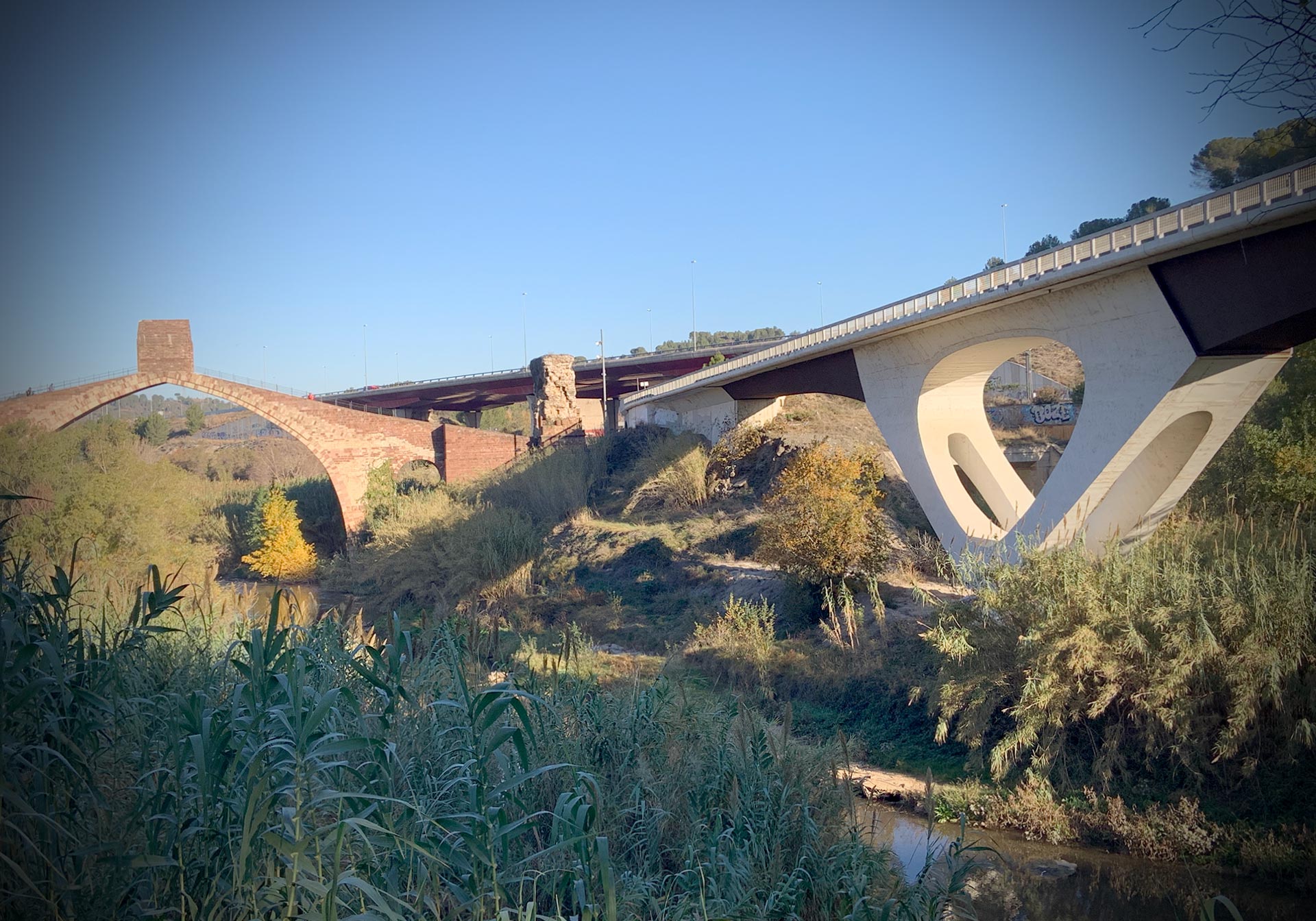
The Frías bridge, the engineer asserts, is a "magnificent bridge, with the peculiarity that it is one of the few that still retains a medieval tower." An aspect that stands out because with the arrival of the automobile, bridges began to be used for its passage "and the medieval towers were dismantled in almost all to gain width." In Frías, it remains.
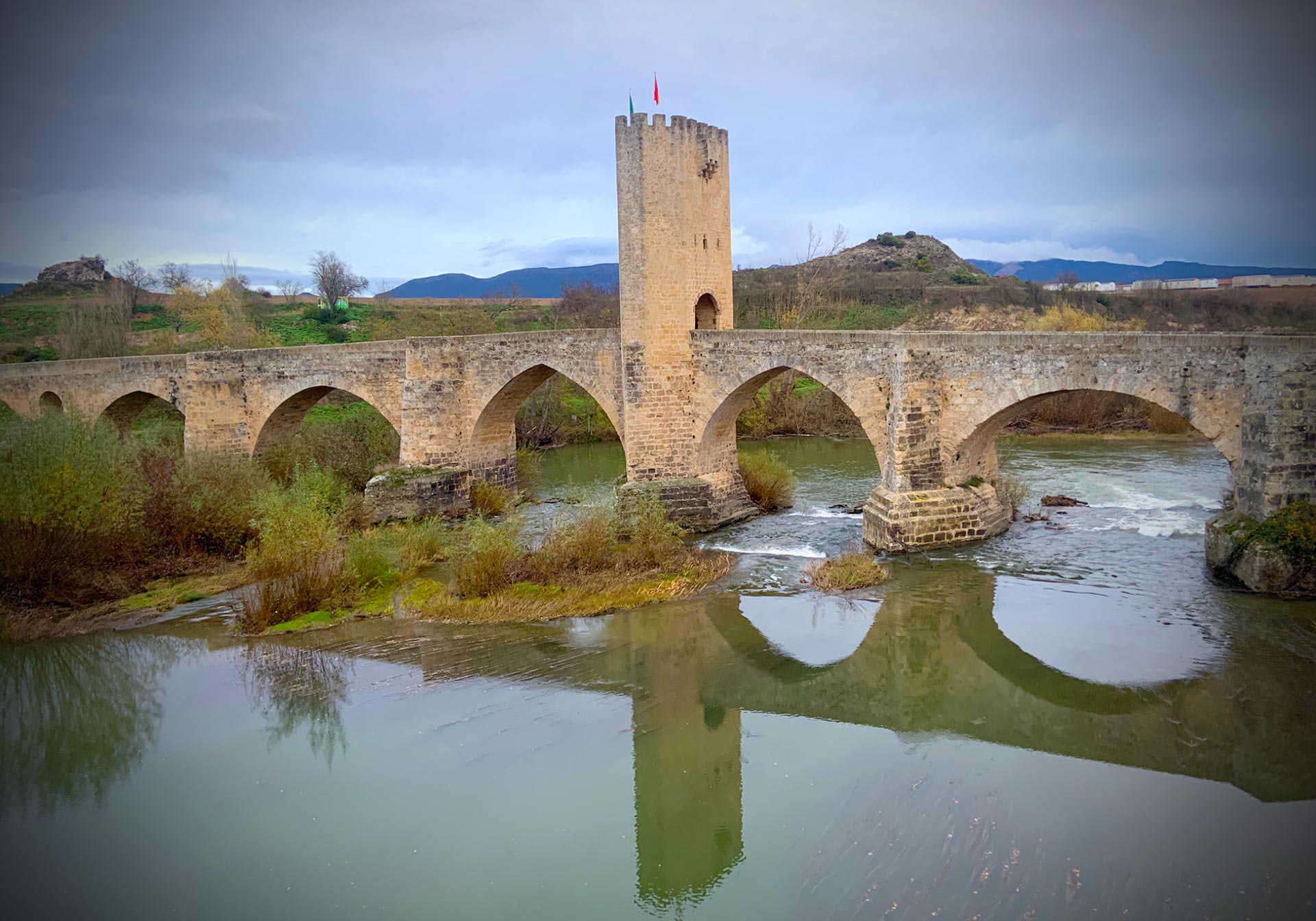
Built in the 13th century to cross the Pisuerga, the Simancas bridge is one of those "to which you have to have affection" because it has been rebuilt many times. "It's normal that sooner or later the river will take down one of the piers," warns the expert. "Simancas is proof of that and shows different patches from different eras."
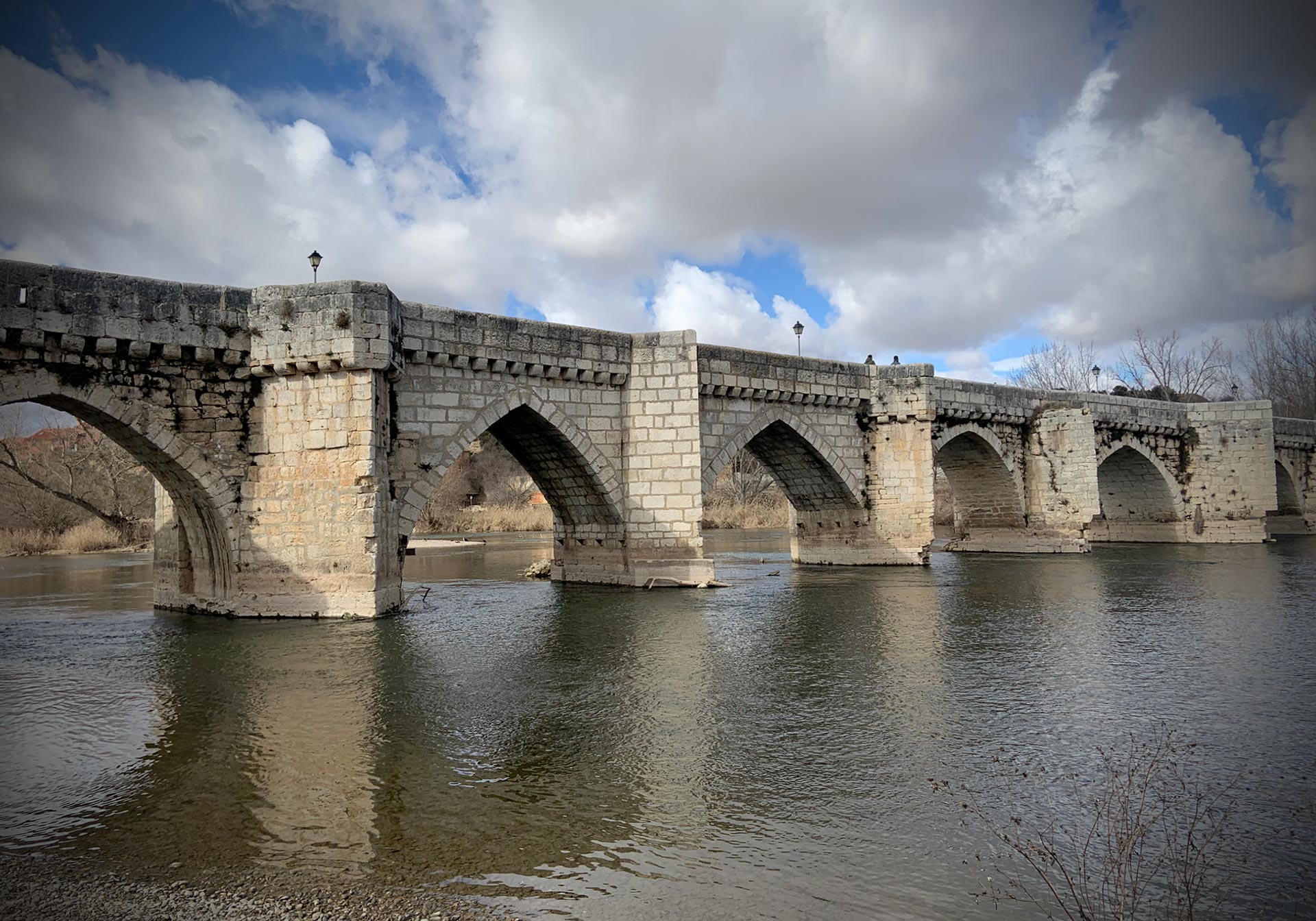
Polimón describes the reconstruction of Pont Trencat as "daring," a piece that "had been broken for a long time" and for which there was no historical reference.
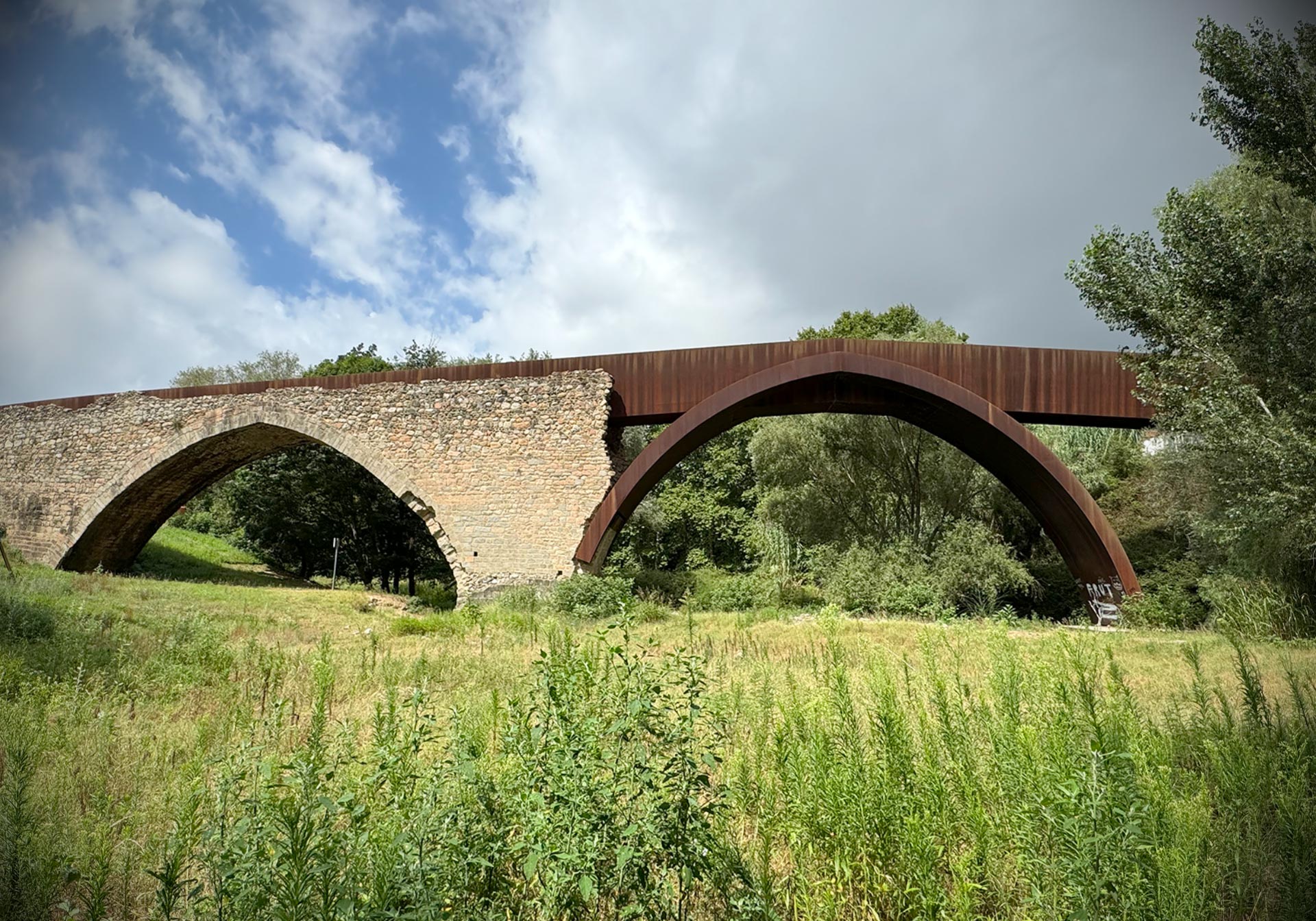
That's why the person in charge of restoring the bridge came up with the idea of placing "a very modern arch next to a very old one to highlight that they are from different eras."
Publicidad
Publicidad
Te puede interesar
Publicidad
Publicidad
Esta funcionalidad es exclusiva para registrados.
Reporta un error en esta noticia

Debido a un error no hemos podido dar de alta tu suscripción.
Por favor, ponte en contacto con Atención al Cliente.

¡Bienvenido a TODOALICANTE!

Tu suscripción con Google se ha realizado correctamente, pero ya tenías otra suscripción activa en TODOALICANTE.
Déjanos tus datos y nos pondremos en contacto contigo para analizar tu caso

¡Tu suscripción con Google se ha realizado correctamente!
La compra se ha asociado al siguiente email
Comentar es una ventaja exclusiva para registrados
¿Ya eres registrado?
Inicia sesiónNecesitas ser suscriptor para poder votar.